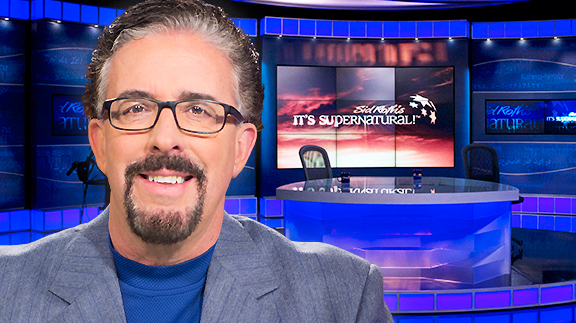
Perry: We don’t preach from it, we don’t mess—.” But here’s the thing. When you, when you interpret the Book of Revelation, please understand this, the Bible interprets itself. First of all you’ll never go wrong in the interpretation if you know the Old Testament. Because did you know the Book of Revelation uses references to the Old Testament hundreds of times! And this is why I tell people, these people that say “Well the Book of Revelation is an allegory.” I say so you’re telling me every Old Testament verse quoted is an allegory? “Well, no—.” Okay, if it’s not an allegory in the Old Testament, you take it literal that the sun’s going to be dark, the moon’s going to turn to blood, you take it literal the earth’s going to shake but then you going to tell me that when you take the same prophetic word spoken by the prophet of the Old Testament and you put it in the New you going to shift it to an allegory because you don’t like what it says! Okay? Can’t do that, can’t do that. If it’s literal in the Old, it’s literal in the New. Now what I want to do here, I want to show you something that I, that I, that I discovered that I thought was very intriguing. If you take, for example, the prophet Ezekiel, and you read what happened to him at the time when the Babylonians came in and destroyed Jerusalem, Israel and took the Jewish people captive, and then go to the Book of Revelation, let me show you something that’s extremely interesting. Most people don’t know this, but John, the Apostle John was linked according to early fathers, to the priesthood in Jerusalem. They [people] don’t know that— in fact let me saying something about the Book. John wrote this Book from a, from a perspective of a man that understood the priesthood in Jerusalem. There are all sorts of scriptures in the Book of Revelation that you would have had to known how the Temple was set up and you would have had to have known Judaism a little bit to understand what he’s writing. Let me give you one: Blessed is he who obeys the Words of the Book and when I come, you know He, I find him doing lest I see him and he be, he walk naked. What’s it mean when Jesus is warning us to be careful that you don’t walk naked when He has returned? That does not mean “Oh I’d better watch these Christians, they’re going to have all their clothes off before I get back. You’d better tell them to keep their clothes on.” Now you know that in the West you’re thinking what does it mean? Here’s what He meant. In the time of, of, uh, the Temple, in the time that John wrote this, or in the time of Christ, let’s go back to that, they had what was called “Temple Watchmen” and the hardest watch was the fourth watch, it was from 3 to 6 in the morning. It was hard to stay awake. And what would happen is this, and there are historical references, references about this from, from even secular writers. But what would happen is if the Captain of the House, who was like, he wasn’t the High Priest but he was over the guards, he would come walking with the stick and if saw a guy getting a little bit slumbery, he’d pop him in, in, with, in the behind with that stick, “psssh,” pop him. You know that’d wake the guy up. Okay? That in the New Testament, would be called “chastisement.” Seriously. To chastisement doesn’t mean to beat somebody down. To chastise it means to give him a quick spanking, or, or you know to slap him a little bit to get him, to get him awake to where they won’t go the way they’re going. So he chastised him by hitting him with the stick. Now here’s the thing that’s interesting. If he caught, if the Captain of the House caught a priest sleeping, do you know what they did? They had him stand up, wake up, and they called the other Temple guards together. They stripped him of his clothes, and burned his clothes and made him walk back to the room naked. And it was the biggest shame for a priest to be caught sleeping.
Tags: It's Supernatural, Sid Roth
